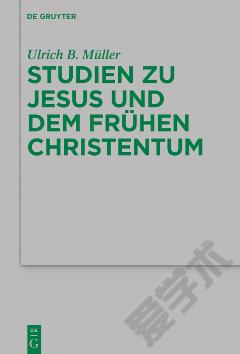Jesus, Sin, and Perfection in Early Christianity
The first full-length study to trace how early Christians came to perceive Jesus as a sinless human being. Jeffrey S. Siker presents a taxonomy of sin in early Judaism and examines moments in Jesus' life associated with sinfulness: his birth to the unwed Mary, his baptism by John the Baptist, his public ministry - transgressing boundaries of family, friends, and faith - and his cursed death by crucifixion. Although followers viewed his immediate death in tragic terms, with no expectation of his resurrection, they soon began to believe that God had raised him from the dead. Their resurrection faith produced a new understanding of Jesus' prophetic ministry, in which his death had been a perfect sacrificial death for sin, his ministry perfectly obedient, his baptism a demonstration of perfect righteousness, and his birth a perfect virgin birth. This study explores the implications of a retrospective faith that elevated Jesus to perfect divinity, redefining sin.
{{comment.content}}








 京公网安备 11010802027623号
京公网安备 11010802027623号